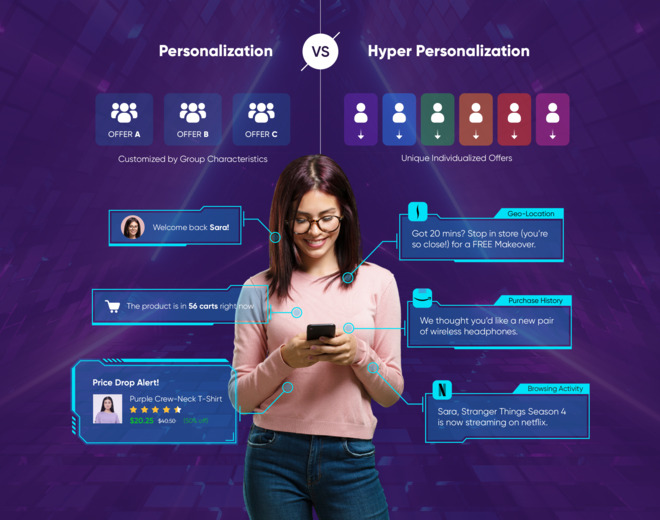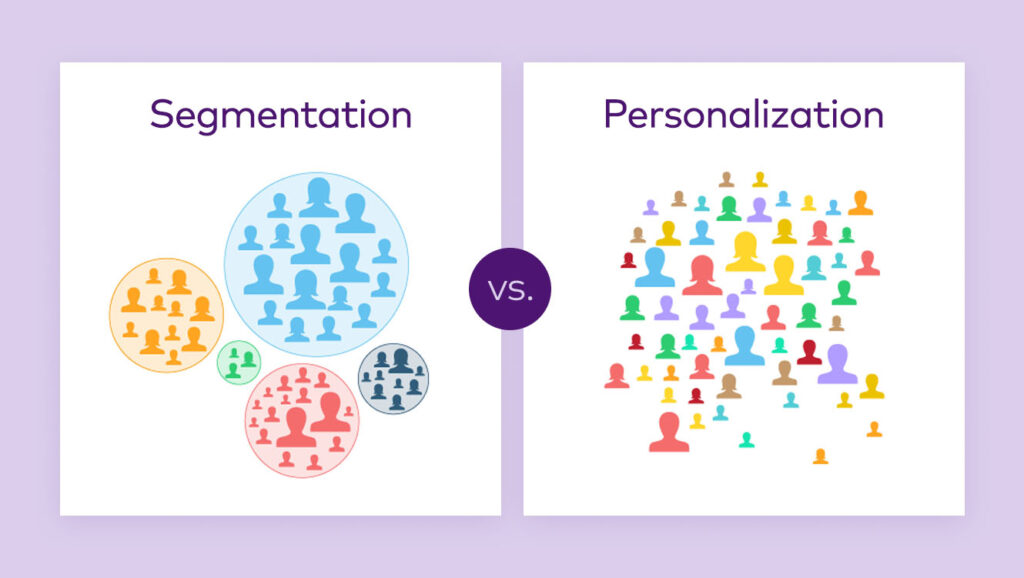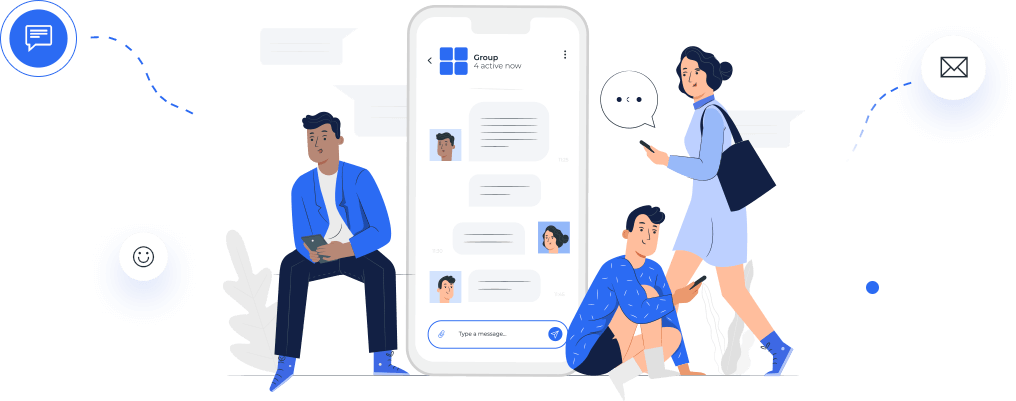In the ever-evolving world of digital marketing, businesses are constantly looking for ways to stay ahead of the curve. One of the most powerful tools available today is Artificial Intelligence (AI). From improving customer engagement to optimising campaigns, AI is transforming the way businesses approach marketing. In this ultimate guide, we’ll explore how you can leverage AI to create smarter marketing campaigns that drive results and enhance customer experiences.
What is AI in Marketing?
Artificial Intelligence refers to the ability of machines to learn, adapt, and perform tasks that typically require human intelligence, such as decision-making, problem-solving, and data analysis. In marketing, AI encompasses a wide range of technologies like machine learning, natural language processing (NLP), and predictive analytics. These tools allow marketers to analyse vast amounts of data, automate processes, and deliver more targeted and personalised campaigns.
Why AI is Crucial for Modern Marketing
As marketing becomes more data-driven, AI’s role is becoming increasingly essential. Here are a few reasons why AI is crucial for modern marketing campaigns:
- Personalisation: Customers expect personalised experiences, and AI allows businesses to tailor their messaging, offers, and content to individual preferences.
- Automation: AI can automate repetitive tasks such as data collection, email marketing, and ad targeting, freeing up time for marketers to focus on strategy.
- Data-Driven Insights: AI can analyse massive amounts of data in real-time, providing actionable insights to improve marketing strategies.
- Optimisation: AI tools can optimise campaigns on the fly, testing different variables and adjusting tactics to improve performance.
Now, let’s dive into how you can use AI to enhance various aspects of your marketing campaigns.
Personalising Customer Experiences
Personalisation is no longer a luxury; it’s an expectation. AI allows you to deliver highly relevant and tailored content to your audience at scale. Here’s how:
- Predictive Analytics: By analysing past behaviour and data, AI can predict what customers are likely to do next, allowing businesses to deliver personalised recommendations, emails, and offers.
- Dynamic Content Delivery: AI can help you serve personalised content to website visitors, such as product recommendations based on their browsing history or location-based promotions.
- Segmentation: AI can segment your audience into more precise groups based on demographics, interests, and behaviours, ensuring that the right message reaches the right person at the right time.
For example, e-commerce businesses use AI to create personalised shopping experiences, suggesting products based on past purchases, browsing behaviour, and even what other customers have bought.

Automating Campaigns and Processes
One of the key benefits of AI is its ability to automate time-consuming tasks, making your marketing campaigns more efficient and scalable. Here’s how you can use AI to automate various aspects of your marketing:
- Email Marketing: AI tools can automate email campaigns, segment your email list, and even optimise send times based on user preferences and behaviours. Tools like Mailchimp or HubSpot use AI to analyse customer interactions and suggest the best times to send emails, increasing engagement and conversions.
- Chatbots and Conversational Marketing: AI-powered chatbots can engage with customers on your website 24/7, answering questions, guiding users through product selections, or assisting with customer support. Chatbots also collect valuable data that can inform your future marketing efforts.
- Social Media Management: AI tools like Hootsuite and Sprout Social can automate your social media scheduling, content curation, and audience engagement, ensuring you maintain a consistent online presence without the manual effort.
These automated processes save valuable time and resources while ensuring that your marketing efforts are consistent and highly targeted.
Optimising Campaigns with Real-Time Data
AI can optimise your marketing campaigns by analysing real-time data and making adjustments on the fly. This allows businesses to maximise their ROI and avoid wasting resources on ineffective tactics. Here’s how AI helps:
- A/B Testing: AI can run and optimise A/B tests faster and more efficiently than manual methods. It can determine which headlines, images, or call-to-action buttons work best for your target audience, and then automatically adjust your campaign accordingly.
- Ad Optimisation: AI tools like Google Ads and Facebook Ads use machine learning to automatically adjust your ad targeting and bidding strategies, helping you get the most out of your advertising budget. These platforms analyse past performance data and continually refine their algorithms to ensure your ads are reaching the right people.
- Customer Journey Mapping: AI can track and analyse customer behaviour across multiple touchpoints, helping you optimise the entire customer journey. This data-driven approach ensures that each interaction with your brand is meaningful and contributes to the overall customer experience.
Real-time campaign adjustments powered by AI can lead to significant improvements in conversion rates, customer retention, and overall marketing effectiveness.

Leveraging AI for Content Creation
Content creation can be a time-consuming process, but AI can help streamline it. Here are a few ways AI is changing the content game:
- Content Generation: AI tools like GPT-3 can generate blog posts, social media captions, product descriptions, and more. While AI-generated content may still need human editing, it can significantly speed up the content creation process.
- Content Curation: AI can help you curate content by identifying trending topics, relevant articles, and valuable resources for your audience. Tools like Curata and Scoop.it use AI to recommend content that resonates with your target market, ensuring your content marketing efforts stay on track.
- SEO Optimisation: AI-powered SEO tools, such as Clearscope or SurferSEO, can analyse search intent and competition to help you optimise your content for search engines, ensuring better visibility and higher organic traffic.
By using AI in content creation, marketers can produce more relevant and engaging content faster while improving the overall quality of their campaigns.
Enhancing Customer Insights with AI Analytics
AI analytics platforms can help you uncover deeper insights into your customers’ behaviours, preferences, and needs. These insights can inform all aspects of your marketing strategy. Here’s how AI-driven analytics can benefit your business:
- Customer Segmentation: AI can segment your audience based on a variety of factors, from purchasing habits to engagement levels. This allows for highly targeted campaigns that speak directly to the specific needs of each segment.
- Churn Prediction: AI can analyse customer data to predict which customers are at risk of leaving, allowing you to take proactive measures to retain them.
- Sentiment Analysis: AI can analyse customer reviews, social media posts, and feedback to gauge customer sentiment about your brand or products. This can help you adjust your messaging or product offerings based on real-time feedback.
By leveraging AI-powered analytics, you can make data-driven decisions that enhance your marketing strategy and improve customer satisfaction.
AI-Powered Advertising
AI can make advertising campaigns more efficient and cost-effective. Here are a few ways AI improves paid advertising:
- Dynamic Ads: AI can create dynamic ads that automatically adjust their content, images, or targeting based on user behaviour. For example, if a customer has previously browsed a specific product on your website, they might see an ad featuring that product.
- Bid Management: AI can optimise your ad bidding strategy by automatically adjusting bids based on performance data, ensuring you get the most value for your ad spend.
- Programmatic Advertising: AI-powered programmatic advertising platforms use machine learning algorithms to automatically buy and place ads in the best spots, improving targeting and efficiency.
AI’s ability to refine ad targeting, automate bidding, and personalise content can lead to significant improvements in ad performance and ROI.
AI and Voice Search: Optimising for the Future
Voice search is on the rise, with virtual assistants like Siri, Alexa, and Google Assistant becoming integral to consumers’ daily lives. AI is crucial for optimising your marketing campaigns to take advantage of voice search trends.
- Optimising for Voice Search Queries: Unlike traditional text-based searches, voice search queries tend to be more conversational. AI can help you identify long-tail keywords and conversational phrases that users are likely to voice when searching for your products or services.
- Voice Commerce: With the growth of voice assistants, voice commerce is becoming a reality. AI-driven platforms can help brands prepare for voice-driven sales by enabling voice search-enabled ads, product recommendations, and purchasing opportunities via voice assistants.
- Improved Local Search Results: Voice search often involves location-based queries. AI can optimise your business listings for local voice search, ensuring that your business shows up in voice queries like “best pizza near me” or “where can I buy running shoes?”
By embracing AI for voice search optimisation, businesses can tap into the growing trend of voice commerce and become more discoverable to users on-the-go.

AI in Influencer Marketing: Connecting with the Right Ambassadors
Influencer marketing has become a cornerstone of many digital marketing strategies. AI can take your influencer marketing to the next level by helping you identify the right influencers and measure campaign performance.
- AI-Powered Influencer Discovery: AI can analyse social media profiles to identify influencers whose followers match your target audience. It can assess factors like audience demographics, engagement rates, and content relevance to help you find the best-fit influencers for your brand.
- Sentiment Analysis for Influencers: AI can help you gauge an influencer’s reputation by analysing the sentiment around their content. This analysis can determine if the influencer’s values align with your brand and ensure that their content resonates positively with their followers.
- Campaign Performance Tracking: Once a campaign is live, AI can track performance across various platforms, giving you insights into how well influencers are driving engagement, sales, and brand awareness. You can adjust your campaign in real-time based on AI-driven analytics.
By integrating AI into your influencer marketing strategy, you can better connect with the right ambassadors, ensuring that your campaigns are more impactful and efficient.
AI and Augmented Reality (AR) in Marketing: Engaging Customers in New Ways
AI and Augmented Reality (AR) are two technologies that, when combined, create immersive and interactive marketing experiences. By leveraging AR and AI, businesses can create memorable and engaging campaigns that capture customers’ attention.
- AI-Driven AR Experiences: For instance, e-commerce brands are using AI-powered AR to help customers virtually try on clothes, makeup, or accessories before they buy. AI enables the system to adapt to the customer’s facial features, preferences, and past interactions, creating a truly personalised AR experience.
- Interactive Product Demos: AR-powered ads combined with AI can provide interactive demonstrations of your products or services, allowing users to experience them in a more immersive and meaningful way. AI-driven facial recognition, for example, can personalise product recommendations based on a customer’s expression or emotions.
- AR-Enhanced Customer Engagement: With the help of AI, AR technology can be used in physical stores, allowing customers to engage with virtual assistants, scan products for instant information, or enjoy interactive experiences that deepen their connection with your brand.
By incorporating AI and AR into your marketing efforts, you can create innovative, engaging experiences that drive customer loyalty and enhance brand recognition.

AI and Customer Retention: Building Long-Term Relationships
While attracting new customers is important, retaining them is equally crucial. AI can help businesses improve customer retention through targeted campaigns and proactive customer service.
- Predictive Analytics for Churn Prevention: AI can predict when customers are likely to churn based on their behaviour patterns and interactions with your brand. With this information, you can implement targeted retention strategies, such as offering discounts, personalised offers, or loyalty rewards to keep them engaged.
- AI-Powered Customer Support: AI-driven chatbots and virtual assistants can provide 24/7 customer support, answering frequently asked questions, solving common problems, and guiding users through the purchasing process. By delivering fast and efficient support, businesses can improve customer satisfaction and reduce churn.
- Tailored Loyalty Programs: AI can help create loyalty programs that are tailored to individual customer preferences and purchasing behaviour. By analysing past transactions and interactions, AI can offer rewards and incentives that truly resonate with your customers, increasing the likelihood of repeat business.
By leveraging AI to enhance customer retention strategies, you can build long-lasting relationships with your customers and improve lifetime value.
AI and Ethical Marketing: Balancing Personalisation and Privacy
As AI becomes more ingrained in marketing strategies, it’s crucial to address concerns about privacy and data ethics. Customers are increasingly aware of how their data is being used, and it’s important for businesses to maintain transparency and trust.
- Responsible Data Use: AI relies on large sets of customer data to deliver personalised experiences, but businesses must be transparent about how they collect, store, and use this data. Ensuring compliance with regulations like GDPR and CCPA is crucial in maintaining customer trust.
- Transparent Personalisation: It’s essential to balance personalisation with privacy. Customers should have control over the data they share and how it is used. AI can help businesses create personalised experiences without violating customer privacy by providing customers with clear options to manage their preferences.
- AI-Driven Transparency Tools: AI can also help businesses communicate their data practices more effectively. AI-driven tools can create dashboards or reports that explain what data is being collected, how it’s being used, and how customers can manage their preferences, giving them greater control over their information.
Ethical marketing with AI will become increasingly important as privacy regulations evolve, and businesses that prioritise transparency and responsible data use will build stronger, more trusting relationships with their customers.

Embracing AI: The Future of Smarter Marketing Campaigns
AI is revolutionising the way businesses approach marketing, allowing for smarter, more efficient campaigns that can drive higher engagement and better results. By using AI for personalisation, automation, campaign optimisation, content creation, customer insights, and more, businesses can stay ahead of the competition and meet the ever-growing demands of today’s digital consumers.
Incorporating AI into your marketing strategy may seem daunting at first, but with the right tools and mindset, it’s possible to harness the power of this technology to elevate your marketing campaigns and achieve long-term success. Embrace AI, innovate, and stay ahead of the curve to unlock the full potential of your marketing efforts.



Recent Comments